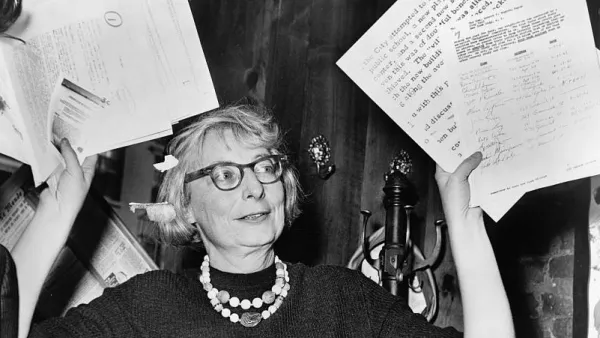Elizabeth Farrelly poses that as we get more connected via the internet and social networking, the female traits of connectivity and relationship-building are ascendant and may mean a new feminine paradigm for city-building.
Farrelly argues that as we leave the suburban model (which separated female and male activities, relegating women to unimportant activities) behind and life and work become more about networking and connectivity, we are moving towards a more "female-formed city":
"The principles of urbanism - intricate connectivity, engagement with history, a focus on the slow, the pedestrian, the being there (as opposed to the getting there) - are feminine values. So, it should be no surprise that many of the voices of this ''new'' urban movement, from Jane Jacobs onward, are female," writes Farrelly.
Her belief is a female-formed city would be less tall and would be "...crazed with interconnecting laneways and gardens and courtyards, lots of shared spaces..."
FULL STORY: Gender and the city

National Parks Layoffs Will Cause Communities to Lose Billions
Thousands of essential park workers were laid off this week, just before the busy spring break season.

Retro-silient?: America’s First “Eco-burb,” The Woodlands Turns 50
A master-planned community north of Houston offers lessons on green infrastructure and resilient design, but falls short of its founder’s lofty affordability and walkability goals.

Delivering for America Plan Will Downgrade Mail Service in at Least 49.5 Percent of Zip Codes
Republican and Democrat lawmakers criticize the plan for its disproportionate negative impact on rural communities.

Test News Post 1
This is a summary

Test News Headline 46
Test for the image on the front page.

Balancing Bombs and Butterflies: How the National Guard Protects a Rare Species
The National Guard at Fort Indiantown Gap uses GIS technology and land management strategies to balance military training with conservation efforts, ensuring the survival of the rare eastern regal fritillary butterfly.
Urban Design for Planners 1: Software Tools
This six-course series explores essential urban design concepts using open source software and equips planners with the tools they need to participate fully in the urban design process.
Planning for Universal Design
Learn the tools for implementing Universal Design in planning regulations.
EMC Planning Group, Inc.
Planetizen
Planetizen
Mpact (formerly Rail~Volution)
Great Falls Development Authority, Inc.
HUDs Office of Policy Development and Research
NYU Wagner Graduate School of Public Service





























